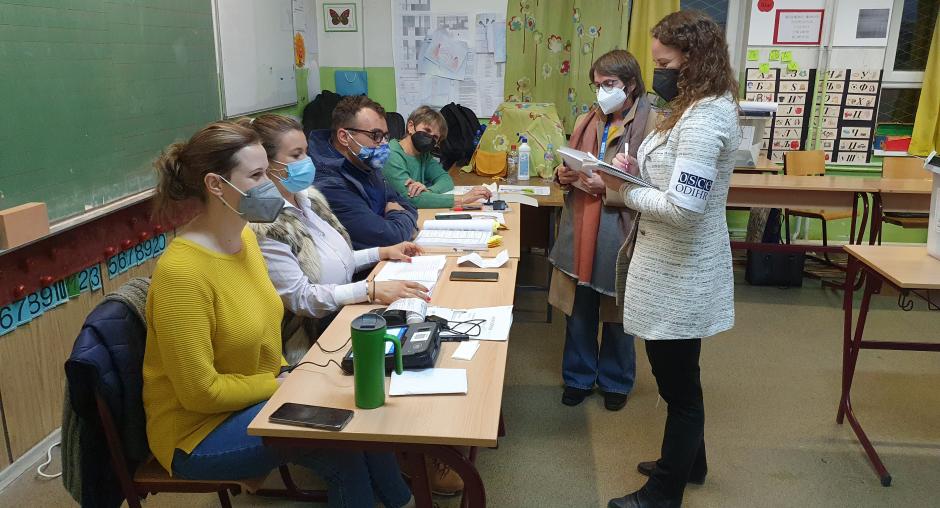North Macedonia’s second round of local elections was competitive but allegations of pressure on voters persisted, ODIHR observers say

SKOPJE 1 November 2021 – The second round of North Macedonia’s local elections was competitive and the election administration took efforts to address some procedural shortcomings from the first round. However, negative rhetoric and allegations of pressure on voters and candidates continued to affect the elections, international observers from the OSCE Office for Democratic Institutions and Human Rights (ODIHR) said in a statement today.
Election officials carried out the technical preparations for the run-offs within legal deadlines. Following some efforts to address technical issues from the first round, the second-round election day proceeded smoothly, although some shortcomings persisted. The inadequate handling of complaints undermined effective remedy and deprived some people of the opportunity to vote.
While financial reports were required of contestants in the second round, they were not published prior to voting. This, along with the limited public information on and accountability for campaign finances in the first round, reduced transparency.
Broadcasters monitored by ODIHR provided voters with ample information about contestants and the tone of news programmes was generally neutral. The largest parliamentary parties enjoyed systemic advantages in the distribution of public resources for campaigning and coverage and advertising in the media, significantly disadvantaging independent candidates and those from smaller parties.
“More can be done to make elections in North Macedonia more inclusive, both of independent candidates and those representing smaller parties,” said Tana de Zulueta, head of ODIHR’s election observation mission. “Improvements to the election framework could create a more level playing field by addressing systemic disparities in campaign opportunities, as well as focusing on ways of improving the participation of women in political life.”
ODIHR’s Election Observation Mission to North Macedonia commenced its work on 7 September with a team of 16 experts based in Skopje. In this second round, the mission included 23 observers from 13 countries. A final report with recommendations for improving the election process will be available in about two months.
For further information, please contact:
Katya Andrusz, ODIHR: +48 609 522 266 or katya.andrusz@odihr.pl
